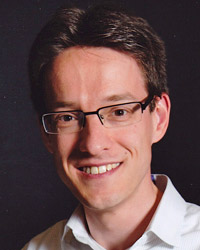Let’s do away with the religion/secular divide

In the third and final piece in our series on “Religion, Secularism and Multiple Modernities in Europe”, Professor of Secularization Studies, Herman Paul, argues that the religious/secular divide is unhelpful for thinking about the realities of human existence and should be done away with.
Odd as it may sound for someone occupying a chair in secularization studies, I don’t think the religion/secular divide around which much of current reflection on religion in modern societies revolves is particularly helpful. Although the distinction is a classic one, and has become so widely accepted that it is hard to conceive of alternatives, I should like to argue that the religion/secular divide is not particularly helpful in elucidating how we, contemporary Europeans, conceive of our lives.
Let me substantiate this with an example from my recent teaching experience. Together with some colleagues, I organized a colloquium, in November 2013, as well as a post-academic course on what Anthony Giddens, in his book Modernity and Self-Identity, calls ‘self-actualization’ (zelfontplooiing in Dutch). This struck us as an important theme, given that popular self-help books and women’s magazines all advise their readers, in various ways, to take control of their lives and to live, not in accordance to the expectations of others, but in accordance with what they feel is their own, authentic identity – ‘become what you are!’
Is self-actualization a religion? Yes and/or no, depending on your definitions. Self-actualization is not religious in the sense that it draws explicitly on any of the world’s major religions, even though Christian subtexts are usually not difficult to detect. At the same time, self-actualization seems to take on religious characteristics in so far as it specifies the goal of human existence and provides people with means and examples for devoting their lives to that goal. But if this qualifies it as religious, the gospel of self-actualization is decidedly an inner-worldly gospel, without any transcendence or hope beyond the here and now.
So, as long as ‘religion’ presupposes the ‘secular’ as its implicit other, it would be hard to classify self-actualization as religious. But in so far as ‘secular’ means ‘non-religious’, it is equally difficult to rubricate self-actualization under the ‘secular’. For doing so would amount to overlooking the liturgies, the moral codes, and the promises of redemption characteristic of self-actualization – liturgies, codes, and promises that are strikingly analogous to those conventionally classified as religious.
This, then, is one reason as to why I hesitate to employ a religion/secular distinction in studying self-actualization and other contemporary lifestyle discourses. Things get even further complicated, in the second place, when we realize that self-actualization is a discourse that mingles easily with other discourses on the self and its vocations. I discovered that even devout Christian women’s magazines treat their readers to stories that score high on Giddens’ criteria of self-actualization. Interestingly enough, such Christian women’s magazines appropriate the secular gospel of self-actualization by interpreting it in classical Christian terms.
I won’t expand on this example, but mention it in order to show that the question whether self-actualization is ‘religious’ or ‘secular’ is perhaps of less importance than the question how it captures the fascination both of people who would describe themselves as secular and those who would conceive of themselves as religious. In other words, whether self-actualization is ‘religious’ or ‘secular’ or both depends not just on features of its own, but also on those of the discourses in which it is appropriated.
So, what is the alternative? I’m not advocating abandonment of the terms ‘religion’ and ‘secular’ – even though I increasingly find myself employing terms like ‘desire’, ‘trust’, ‘commitment’, ‘lifestyles’, and, especially, ‘narrative templates’. What should be abandoned, though, are binary dichotomies between the ‘religious’ and the ‘secular’. I’m more interested in finding out what sort of stories people enact both in their life-writing and in their day-to-day practice than in judging to what extent those stories are religious or secular or both.
If pressed, however, I would tend to think that all human beings are religious in one sense or another, which is to say that they all have some commitments to what they regard as ultimately true, or good, or beautiful. If such a broad concept of religion would any make sense, it would follow that what we, students of religion, examine is not whether people are religious, but how they are – what are the forms of religion that currently capture our imagination and guide our lives? This, however, is a meaningful question only if we are able to abandon classic dichotomies between religion and the secular. So I think that’s the upshot of my thoughts here: let’s do away with the religion/secular divide!
Herman Paul, Professor of Secularization Studies, Faculty of Theology and Religious Studies, University of Groningen

